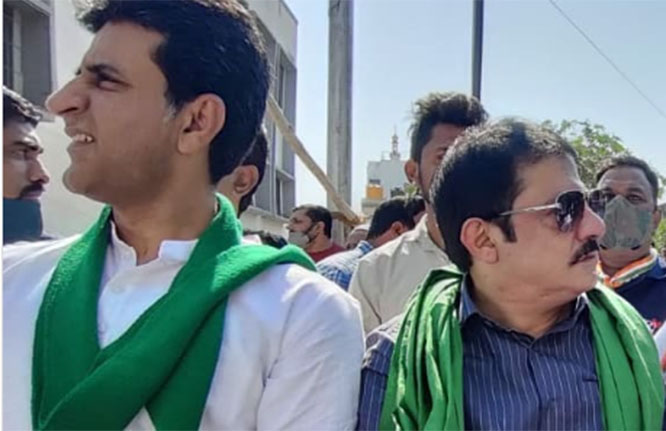
British Member of Parliament David Amess, 69, has died after being stabbed several times during a meeting with his constituents at a church in eastern England. A 25-year-old suspect has been arrested.
Reports said a man walked into Belfairs Methodist Church in Leigh-on-Sea, south Essex, where Amess was holding a surgery with locals on Friday and attacked the politician.
“He was treated by emergency services but, sadly, died at the scene,” police said. “A 25-year-old man was quickly arrested after officers arrived at the scene on suspicion of murder and a knife was recovered.”
In a statement, the Metropolitan Police has said that the murder Amess has been declared as a “terrorist incident”, with the investigation being led by its Terrorism Command, the agency said in a statement posted on social media.
Detectives said they were not looking for anyone else in connection with the incident. There was no detail about the motivation for the attack but the chief constable of Essex police later said counterterrorism officers are leading the investigation.
“The investigation is in its very early stages and is being led by officers from the specialist counterterrorism command,” Ben-Julian Harrington told reporters.
“It will be for investigators to determine whether or not this is a terrorist incident.”
Colleagues from across parliament expressed their shock and sorrow and paid tribute to Amess, who held regular meetings with voters on the first and third Fridays of the month, saying he was diligent in his duties to his local area. Amess leaves behind a wife and five children.
Flags in Downing Street were lowered in tribute.
Prime Minister Boris Johnson said he and his cabinet were “deeply shocked and heart-stricken”.
“David was a man who believed passionately in this country and in its future, and we’ve lost today a fine public servant and a much-loved friend and colleague,” Johnson said.
The prime minister would not say whether the attack meant politicians needed tighter security, saying, “We must really leave the police to get on with their investigation.”
Amess has been a member of parliament for Southend West, which includes Leigh-on-Sea, since 1997, but has been a lawmaker since 1983.
He was a well-liked member of parliament, best known for his ceaseless campaign to have Southend declared a city.
His website lists his main interests as “animal welfare and pro-life issues”.
Violence against British politicians is rare, but two other British lawmakers have been attacked this century during their “surgeries”, regular meetings where constituents can present concerns and complaints.
In June 2016, Labour Party lawmaker Jo Cox was fatally stabbed and shot in her northern England constituency. A member of the far right was convicted of her murder.
In 2010, Labour lawmaker Stephen Timms survived a stabbing in his constituency office.
Jacqui Smith, chair of the Jo Cox Foundation, said in a statement on Twitter that Amess’s death is a “tragic loss for those who knew and loved Sir David”.
“I knew him as a generous and dedicated colleague in Parliament. Public life must be safe for those we ask to serve in our democracy – that is a responsibility for us all.”
Leader of the Labour Party Keir Starmer said on Twitter that David was a “dedicated public servant”.
“Informed by his faith, David had a profound sense of duty, that I witnessed first hand in parliament,” Starmer said.
“We will show once more that violence, intimidation and threats to our democracy will never prevail over the tireless commitment of public servants simply doing their jobs.”
Chris Doyle, the director of the Council for Arab-British Understanding – who knew both Amess and Cox – said that the killing of Amess would have a “chilling effect on British politics – the way in which you get that vital interchange between an elected member of parliament, part of the legislature, and the constituents that they represent.”
“There are 650 British MPs that will now be thinking ‘that could have been me’,” he said.
“They will be looking over their shoulders, they will be thinking ‘how can we improve our security. But above all of course the main sentiment is for David’s family and friends – to have lost him in such a way is just beyond belief.”
British lawmakers are protected by armed police when they are inside Parliament, but have no such protection in their constituencies. Amess published the times and locations of his open meetings with constituents on his website.
“Questions are rightly being asked about the safety of our country’s elected representatives and I will provide updates in due course,” Home Secretary Priti Patel said on Friday.








Comments
Add new comment